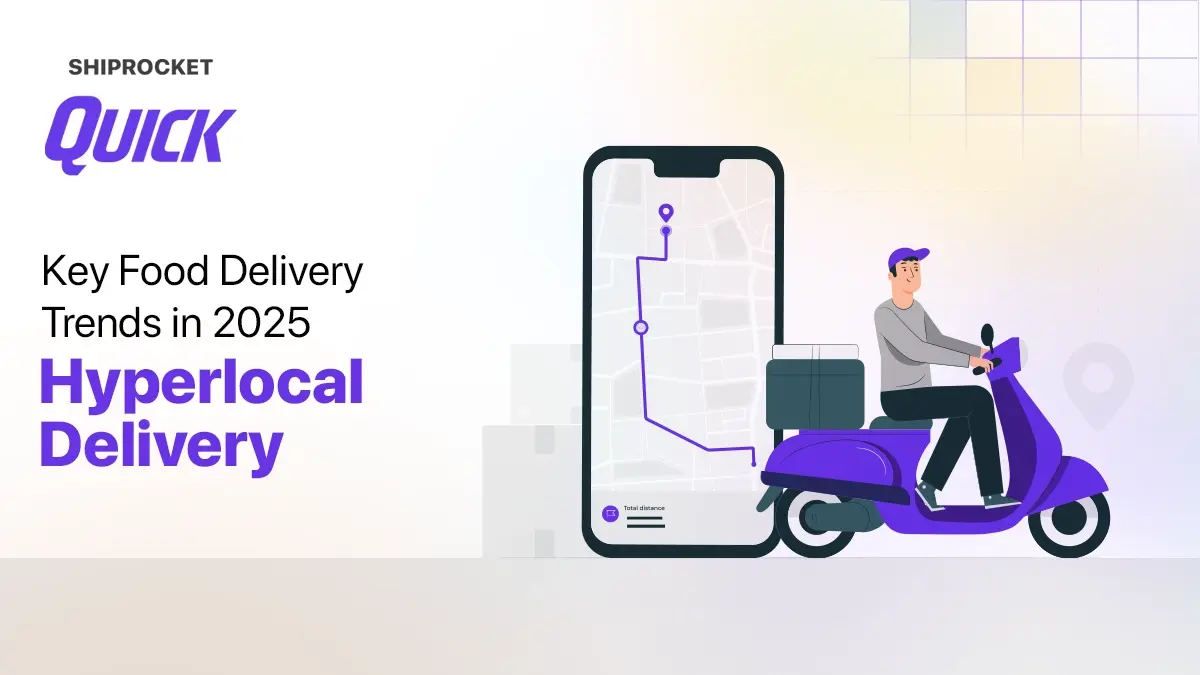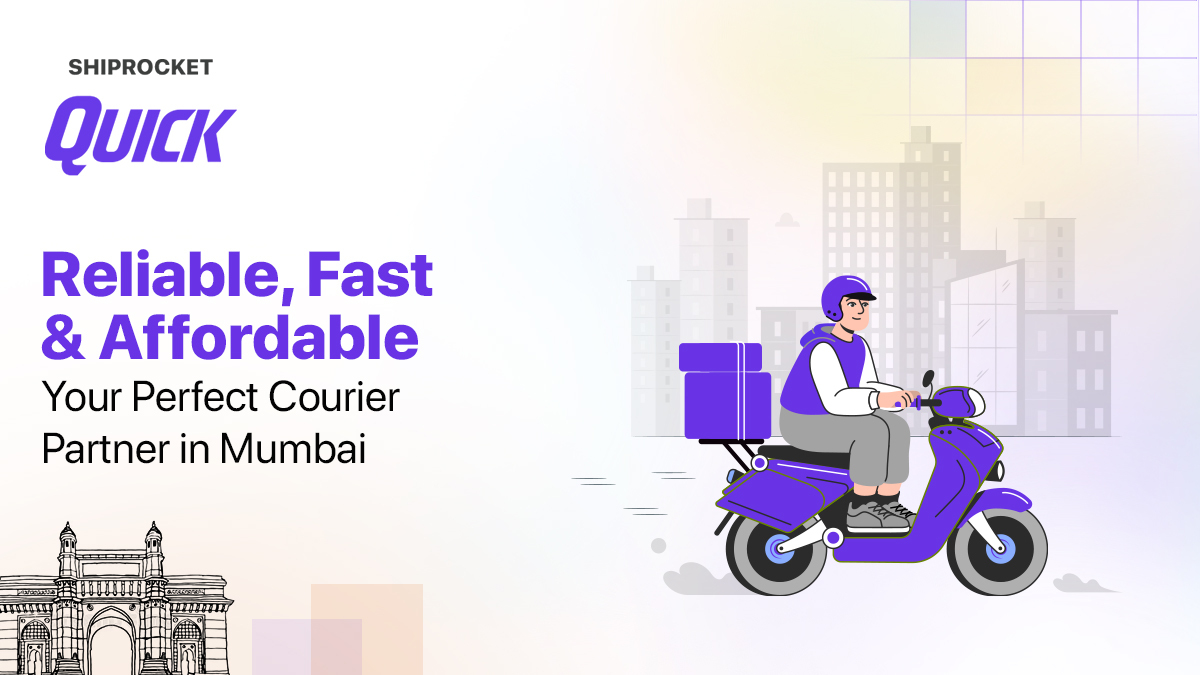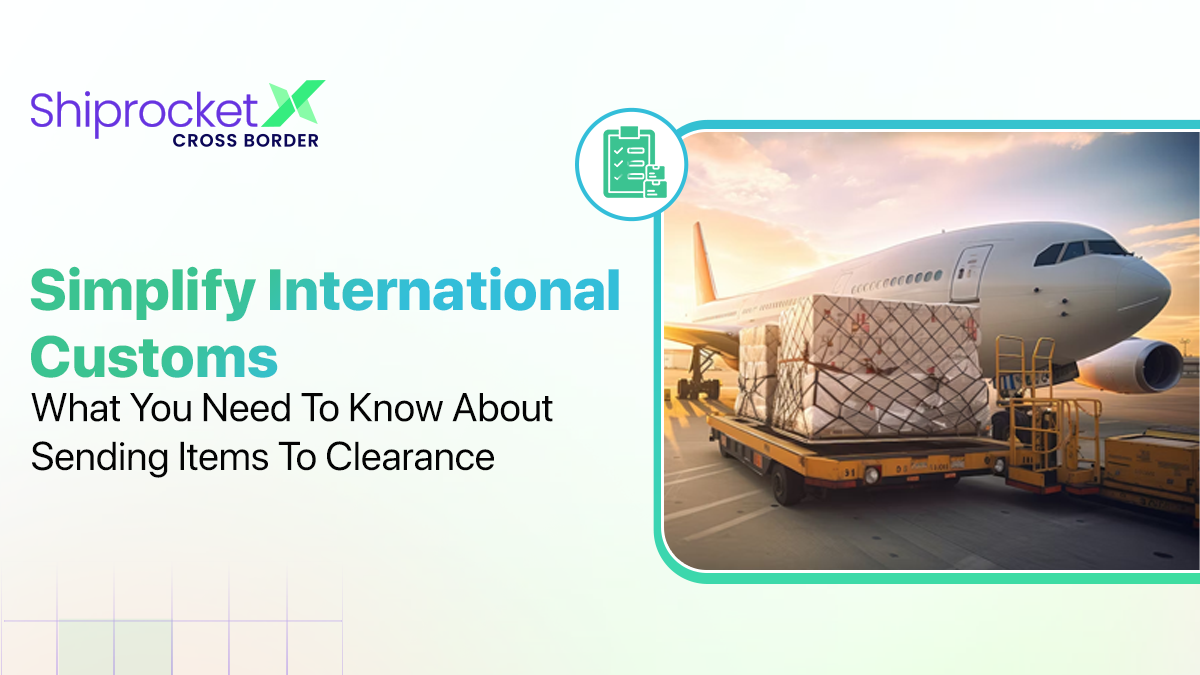FOB (Free On Board) Shipping: Benefits, Terms, & Pitfalls
- How Is FOB Shipping Beneficial For Buyers & Sellers?
- What Are Some Of The Important Terms For FOB Shipping?
- How Does The Process Of FOB Shipping Work?
- How Does FOB Affect Shipping Expenses and Authority?
- Important Considerations in FOB Incoterms
- FOB shipping point: Suggestions for Buyers
- How to mention FOB shipping terms on a shipping label?
- What are the Common Pitfalls of FOB and How to Avoid Them?
- Misconceptions about FOB
- Why Work With A 3PL Provider?
FOB shipping which stands for ‘Free on Board’ shipping, is one of the incoterms (International Commercial Terms) designed by the International Chamber of Commerce (ICC) for international trade, shipping, and transporting of goods. It indicates the liability for goods if they are damaged, lost, or destroyed during international transportation.
These incoterms help buyers and sellers avoid misunderstandings and disputes to achieve transparency using standardised contract terms.
FOB shipping states that either the buyer or the seller is responsible for goods that are destroyed, damaged, or lost during the transition. The cost and the risk involved in the FOB shipment are transferred to the buyer when goods are on board at a shipping port. In a nutshell, the term FOB indicates the shipping party that will be liable for the damaged goods during the transit as well as for the cost of freight and insurance.

How Is FOB Shipping Beneficial For Buyers & Sellers?
The FOB is not only one of the most common incoterms, but it also has some benefits to the shipping process. It is the most cost-effective method of shipping goods internationally. Let’s understand how it benefits buyers and sellers under FOB origin and FOB destination –
Advantages for Sellers
- FOB Origin
From the seller’s location, the buyer is responsible for arranging and covering the cost of shipping, insurance, and other associated expenses. Sellers are only accountable for getting the items ready and loading them onto the carrier at their location. When compared to other incoterms where the buyer is responsible for making shipping arrangements, sellers might possibly save money by negotiating favourable shipping rates and conditions.
The risk passes to the buyer when the products are loaded onto the carrier at the seller’s site. This lowers the seller’s risk and liability while the goods are in transit.
- FOB Destination
By enabling sellers to oversee logistics, guarantee prompt delivery, and maintain quality control until the items arrive at the buyer’s location, FOB Destination helps improve customer service.
Retailers can expand into new markets by offering inclusive pricing that includes transportation expenses to the buyer’s location. This can streamline business dealings and draw in customers who like all-inclusive pricing.
Advantages for Buyers
- FOB Origin
For buyers, FOB Origin is relatively more cost-effective as they can select their freight forwarder and manage freight costs more effectively. Furthermore, it gives them more control over the shipping process, including shipping terms, costs, and arrangements to select their freight forwarder. This this enables them to manage logistics and mitigate issues in a better way.
When a buyer chooses their own FOB carrier, they have the ability to decide the route and the transit time. The supplier has the sole responsibility for every aspect of the shipment until it arrives at the destination port at the buyer’s end. But, the goods are insured until they arrive at the destination port.
Another benefit of FOB shipping terms for buyers is that they do not need to pay higher fees for goods protection plans.
- FOB destination
For buyers, FOB destination is also beneficial as the risk of loss or damage remains with the seller until the goods arrive at the destination. The suppliers of goods will handle the clearing of goods through the local export process, including clearance documents at the port, which saves buyers’ hassles and complications.
Buyers also have the benefit of choosing and working with the one trusted company throughout the shipping process. It further ensures that they have one central point of contact for any queries or problems that may arise.
What Are Some Of The Important Terms For FOB Shipping?
FOB shipping is beneficial for several reasons, but most importantly, shippers and buyers need to understand FOB shipping terms.

- FOB Shipping Point
FOB shipping point or FOB origin states that the responsibility for goods is transferred from the seller to the buyer once the goods are loaded on a delivery vehicle. After the shipping is done, all the legal responsibility of the goods is transferred from the seller to the buyer.
For example, if a company in India buys smartphones from its supplier in China, and the company signs a FOB shipping point agreement, then in case of any damages to the package during delivery, the company based in India will be responsible for all the losses or damages. In this scenario, the supplier is only responsible for bringing the package to the carrier.
- FOB Shipping Point Cost
The seller bears the responsibility for all fees and transport costs until the goods have reached the shipping port of origin. Once this happens, the buyer becomes responsible for all costs associated with transport, taxes, customs duty, and other fees.
- FOB Destination
The term FOB destination indicates the transfer of goods ownership at the buyer’s physical location. After shipping is done to the buyer’s noted location, the responsibility for goods is transferred to the buyer, who is then legally responsible for them.
- FOB Destination Cost
When the goods reach the final destination of the buyer’s point, the responsibility for fees is transferred from the seller to the buyer.
- Freight Prepaid And Allowed
The seller is responsible for freight charges and remains the owner of goods during transit.
- Freight Prepaid And Added
The seller remains the owner of the goods, pays the freight bill for the shipment, and then adds them to the buyer’s bill after delivery.
- Freight Collect
Sellers remain the owner of goods during transit. Under freight collection, a buyer bears the full responsibility of freight charges once goods are received.
- Freight Collect And Allowed
Under this contract, the seller pays freight charges during transit. Once the goods are received at the buyer’s end, they will pay the freight charges.
How Does The Process Of FOB Shipping Work?
So, if you have decided to go for FOB shipping, we recommend using the service of a professional logistics company that works independently from the seller. This way you’ll likely save costs and ensure goods are safely transported to the destination. Here is how the process of FOB shipping works:
- The seller and the buyer both decide the terms of the contract and modes of transportation.
- Once the terms of the FOB shipping contract are decided, the supplier will load the goods onto the vehicle and clears the goods for export to the port of destination.
- The products are then transferred through the supply chain to the point of destination. Once they reach the destination, the buyer will pick up the goods from the port of destination and take them to their place. From here, the responsibility for the costs of goods and any risk of damage to the freight will be transferred to the buyer.
How Does FOB Affect Shipping Expenses and Authority?
In shipping documents and contracts, the term “FOB” is followed by a location. Whether it’s FOB Origin or FOB Destination, this states the person who will be responsible for paying the freight charges during transit. Let us understand the role of buyer and seller and when the ownership is transferred between the two parties:
Buyer’s role
- In FOB Destination – In this case, the seller is responsible for paying for the transportation expenses, and the buyer is liable for payments when the shipment reaches the intended destination.
- In FOB shipping point – The buyer takes ownership of the goods and payments once they leave the shipment origin.
Seller’s role
- Freight Prepaid – Here, the seller has the financial responsibility and retains the shipment until the goods arrive at the final destination.
- Freight Collect – The seller will ship the cargo, but the buyer is liable to pay the shipping expenses.
These FOB terms affect every aspect of the shipping process. Thus, by understanding these FOB terms, you can determine who files a request for damaged products or decides the final price.
Important Considerations in FOB Incoterms
In this section, we will discuss some of the crucial elements that one should look at when dealing with FOB Intercoms-
- Passing of Risk and Accountability
It is vital to understand about shifting of risk and responsibility from the seller to the buyer in the aspect of FOB Incoterms. As per FOB Origin, the buyer holds the responsibility for the goods once they leave the seller’s location. It will be the buyer who will bear all the costs and risks associated with transportation from that point forward. On the contrary, as per the FOB Destination, it will be the seller’s responsibility of the goods until they reach the buyer’s destination.
- Carriage and Insurance
As per the FOB Incoterms, freight insurance is not a requirement, but it is the buyer’s decision if they would like to opt for an insurance policy for their goods. It is not the seller’s responsibility to contract for carriage, but if the buyer demands it, the seller should provide all the required information to make arrangements for carriage at the buyer’s risk and expense.
- Allocation of Costs
This is yet another important aspect that both parties should decide on before shipping. Therefore, until the shipment is delivered, the seller should bear all the costs, such as proof of delivery, record filing, taxes, etc.
At the same time, it is the buyer’s responsibility to pay all the shipment costs from the point of delivery. Furthermore, they should reimburse the seller for all the costs incurred for loading, carriage, etc.
FOB shipping point: Suggestions for Buyers
FOB shipping point is a term used in shipping contracts wherein it will be the buyer’s responsibility for the goods as soon as they are shipped. Therefore, as a buyer, if you provide consent to ship items as per FOB shipping point terms, it is vital to read the contract carefully and know your accountability.
Listed below are a few tips that you should keep in mind for FOB shipping point terms-
- Know your responsibility
It is better to know about the repercussions of using the FOB shipping point before agreeing to the terms or entering the contract. Know in detail about the costs involved, the risks imposed, and your responsibilities. Different companies have different offers for the types of products being shipped. Therefore, understand the contract well before agreeing to any conditions.
- Know your risk appetite
Evaluate your alternatives for purchasing insurance and managing your shipment during transportation and the expenses related to it. If you are buying expensive or unique items and are unable to get insurance for them, it is recommended to negotiate as much as you can on FOB shipping point terms.
- Evaluate shipping costs
When agreeing to FOB shipping point terms, do not forget to calculate international shipping costs and import taxes that you will have to pay to get the shipment to your location.
- Negotiate on volume
When you order products in bulk from just one vendor, you have an advantage in negotiating FOB destination terms. The reason is that the seller will incur less shipping cost per unit because of the huge quantity.
- Opt for a reliable shipping company
If you are shipping products from a different country, it is better to opt for a transport agency. They take all the burden on their shoulders, starting from managing your cargo to taking care of the taxes and customs and reducing the risk for the purchaser in the FOB shipping point agreement.
How to mention FOB shipping terms on a shipping label?
Here are the primary things one should not miss while documenting a shipping label-
- FOB Conditions
The FOB terms should be clearly stated on shipping labels and other relevant documents. It should be easy to understand whether it is an FOB shipping point or an FOB destination.
- Right address
Apart from including the shipping point or the final destination, it is also important to mention the sender’s address as well. The reason is that the carrier should have the information on where to return the parcel if it is not delivered to the recipient’s address.
- Date and Time
The shipping label and documents should include when the package was shipped and the date when the recipient can expect to receive the package. Mentioning these dates is especially important for time-sensitive shipments.
- Condition of the goods
You should always document the condition of the goods both at the shipping point and destination. In fact, as per the nature of the shipment and the carrier, you should also include other important information such as package weight, shipping class, return instructions, and handling instructions.
What are the Common Pitfalls of FOB and How to Avoid Them?
Mistakes can lead to delays in shipment. Therefore, here are some of the common incoterms mistakes you must avoid-
- Vague Contracts
Contracts must have clear information about FOB designations or shipping point locations. This will be convenient for the buyer if they need to spend extra time and money to transfer the cargo to the original final location. The best way is to mention the complete specific address to ensure everything is clear in the buyer’s address and name. Clarity in the FOB agreement is vital for defining responsibilities.
- Not opting for insurance
There are various risks involved, especially in international trade, such as loss, theft, damage, etc. Thus, whether you are a buyer or seller, it is recommended that you opt for insurance.
If you use CIP (Carriage And Insurance Paid To) or CIF (Cost, Insurance, and Freight), it is essential to check that the amount of insurance placed on the products by the vendor is correct.
The seller should insure a minimum of 110% of the contract value; in case a commercial contract demands a higher level of insurance, it should be met.
- Miscommunication
Be open and transparent in your communication about the freight charges and other related fees. Any misunderstandings regarding payment, address, name or any other policy can lead to delays in shipments.
It is best to outline who is handling what charges in your contract to avert any complications, delays, and unforeseen costs. Therefore, you should always maintain clear communication with the other party regarding all the terms.
Misconceptions about FOB
Below mentioned are some of the misunderstandings various people have about FOB shipping:
- FOB covers all costs
One of the most common misunderstandings about FOB is that it covers all risks and responsibilities associated with shipping. However, this is not the case. FOB makes the buyers responsible for the costs and risks associated with the goods once they are loaded onto the ship/truck/aircraft. This agreement relieves the seller from any obligations once the items have passed the ship’s rail. This implies that only the buyer takes accountability after that.
- FOB regulates legal jurisdiction
The terms and conditions of FOB do not regulate the legal jurisdiction for disagreements. However, if it does, then it should be mentioned separately in the agreement.
- FOB destination is not favorable for sellers
It would seem unfair that the FOB shipping point puts all the risk majorly on the buyer. However, it can hamper the seller’s reputation as well, which can, in turn, reduce their sales if the product is damaged in transit. Although it lowers the shipping cost for the buyers, they still don’t agree with it in many scenarios, specifically in the case of fragile orders, as the risk of damage is very high.
- Seller pays for everything in the FOB destination
Well, the payment terms differ from contract to contract. In general, in FOB destinations, sellers pay relatively more, but they can negotiate the terms and include shipping costs in the price. Furthermore, the buyer might indirectly have to pay for the freight and insurance expenses.
Why Work With A 3PL Provider?
FOB shipping and related incoterms are clearly defined terms that play an important role in international trade. These terms define responsibilities and costs to buyers and sellers and protect the interests of both parties.
But, buyers and sellers need to understand and have complete knowledge of incoterms, which can be difficult to do on your own. In this situation, working with a third-party logistics (3PL) provider who has expertise in all incoterms is a wise step. This will help you focus on your core functions, such as product development and marketing, and not on the shipping terms and conditions.
It is advised to refrain from taking risks with your international shipping, which could cost you tremendously. You can contact a proven third-party logistics service provider like ShiprocketX that streamlines international shipments and ensures the supply chain runs smoothly, leading to business growth.






I want to export palm oil sesame seed cashew nuts granut to china please guide me
Hi,
You can visit here for complete information on international shipping https://www.shiprocket.in/global-shipping/
Or, you can email us at [email protected]